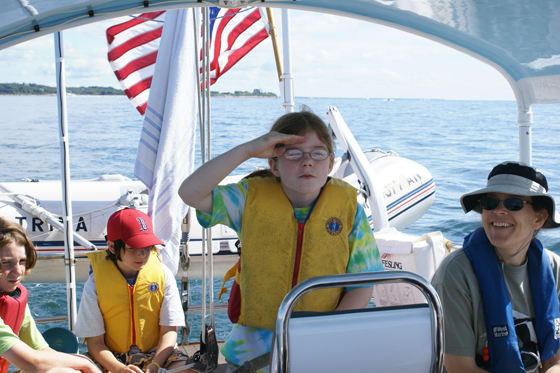Recently I read Gary Jobson’s column in Sailing World about making your own luck through situational awareness. It sounds totally obvious: those who notice what’s off most people’s radar see opportunities others miss. (And then those others say afterward, “She was just lucky.”) In sailboat racing, it’s easy to see who has made big gains; scores are kept, and each competitor can see what the others are doing around the course.
Where those gains are not so obvious is in writing. We all know when we like a book, but we usually don’t notice all the details that are worked in, details that could’ve been left out because they aren’t doing the heavy lifting of moving the plot from point A to point B. And while most writers can tell a decent story, it’s those more subtle pieces of information we often remember long after we read the last page. Information that a writer with less situational awareness would miss.
Like sailboat racing, writing requires attention to craft. But I’m not sure that this situational awareness skill can really be learned in either case. You either see the wind filling up the course, or you don’t. And you either live with your characters full time, or you don’t. The character trivia that enriches our stories comes out of sitting together, quietly, like old friends rocking side by side on a summer porch. We need to understand their lives outside what happens on the page.
For me, “good writing” is when a tiny word or phrase is worked into a story that creates depth well beyond the scope of the specific detail. Sometimes I catch myself thinking, “That must’ve taken a lot of research to find”, and I might even wonder if it was worth the time for a one sentence aside. But added together, all those asides are what gives a piece its impact; it’s why we read, and why writing can’t really be replaced by watching, or anything else.
Gary Jobson is a writer as well as a sailor, so he probably makes his own luck in both arenas. The process, after all, is the same: widen your gaze, try to see something no one else sees, take the time (and develop the nerve) to follow your instinct as far as it leads. Only then can your ideas morph from idiotic time sink into regatta-winning advantage.
